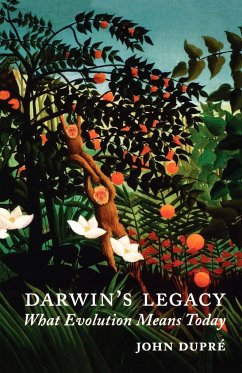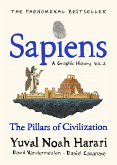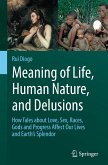The theory of evolution has fundamentally changed our view of the universe and our place in it. By providing a radically new vision of the origin of human beings, it challenged long-held assumptions about our own significance and undermined the major arguments for the existence of God. But almost 150 years after the publication of Darwin's Origin of Species these implications are still not properly understood, and in some sectors of society they are actively resisted. The last decade has also seen the rise of a new field, evolutionary psychology, which takes the theory of evolution to provide insight into aspects of human culture and behaviour as diverse as language, morality, sexuality, and art. This book shows that although there are particular aspects of the theory of evolution which remain controversial, and issues still to be settled, there can no longer be any doubt that the basis of the theory is true. It examines the consequences for our view of human nature, religion, and non-human animals. John Dupre then investigates the appropriation of evolutionary biology by psychologists, and argues that their claims are largely spurious: despite its status as one of the most important scientific ideas of all time, the theory of evolution has very little to tell us about the details of human nature and human behavior.
Charles Darwin transformed our understanding of the universe and our place in it with his development of the theory of evolution. 150 years later, we are still puzzling over the implications. John Dupré presents a lucid, witty introduction to evolution and what it means for our view of humanity, the natural world, and religion. He explains the right and the wrong ways to understand evolution: in the latter category fall most of the claims of evolutionary
psychology, of which Dupré gives a withering critique. He shows why the theory of evolution is one of the most important scientific ideas of all time, but makes clear that it can't explain everything - contrary to widespread popular belief, it has very little to tell us about the details of human nature and
human behaviour, such as language, culture, and sexuality.
Darwin's Legacy clears a path through the confusion and controversy surrounding evolution; anyone who is interested in understanding what the theory of evolution can and can't do will find this a compelling and enjoyable introduction.
Charles Darwin transformed our understanding of the universe and our place in it with his development of the theory of evolution. 150 years later, we are still puzzling over the implications. John Dupré presents a lucid, witty introduction to evolution and what it means for our view of humanity, the natural world, and religion. He explains the right and the wrong ways to understand evolution: in the latter category fall most of the claims of evolutionary
psychology, of which Dupré gives a withering critique. He shows why the theory of evolution is one of the most important scientific ideas of all time, but makes clear that it can't explain everything - contrary to widespread popular belief, it has very little to tell us about the details of human nature and
human behaviour, such as language, culture, and sexuality.
Darwin's Legacy clears a path through the confusion and controversy surrounding evolution; anyone who is interested in understanding what the theory of evolution can and can't do will find this a compelling and enjoyable introduction.








